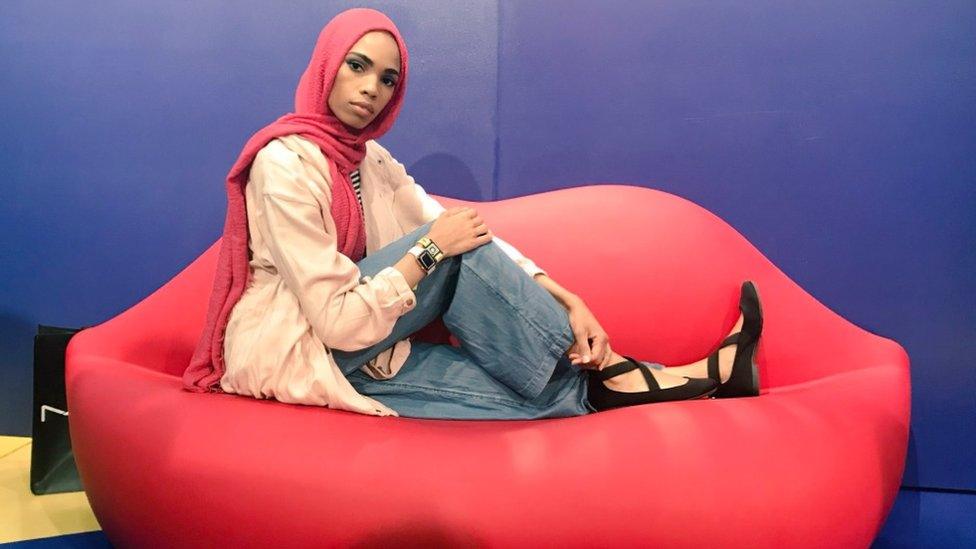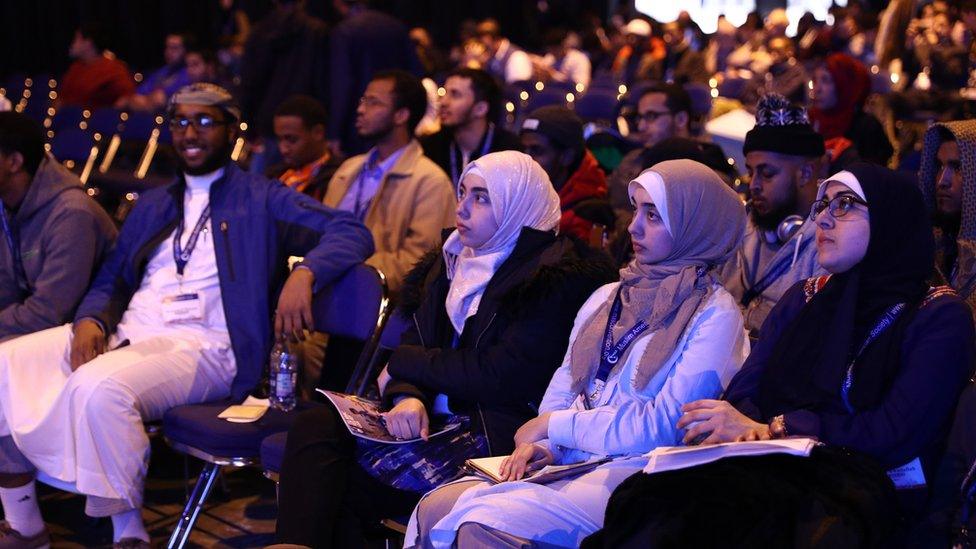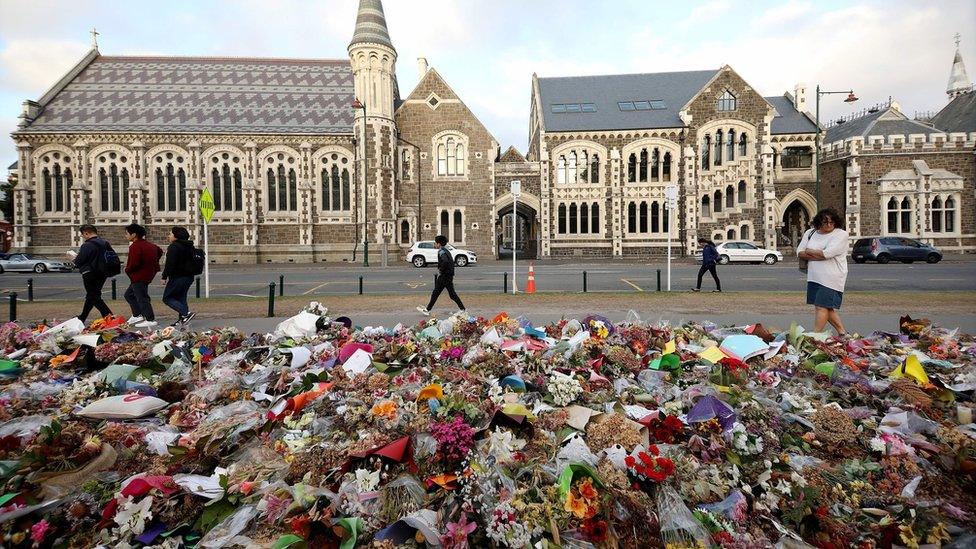Muslim woman's picture with anti-Islam protesters goes viral
- Published

A Muslim woman who posed for a picture with anti-Islam protesters says she wanted to "combat their hatred with love and a smile".
Shaymaa Ismaa'eel told Newsbeat: "The reaction to all this has been crazy, it's overwhelming. I have had a lot of support."
The picture of the 24-year-old, wearing her hijab and flashing the "peace sign" has been liked more than 200,000 times.
It was taken in Washington DC during a three day Islamic convention.
Allow X content?
This article contains content provided by X. We ask for your permission before anything is loaded, as they may be using cookies and other technologies. You may want to read X’s cookie policy, external and privacy policy, external before accepting. To view this content choose ‘accept and continue’.
Shaymaa, who lives on the US east coast and works with children with autism, was one of the 24,000 Muslims attending the 44th annual Muslim American Society and the Islamic Circle of North America (MAS-ICNA) convention in the US capital.
She explains the three day event is a opportunity for Muslims to "refresh and celebrate our faith" and features guest speakers and group workshops.
"The event was a big turnout, nice environment but when we got their we noticed there were protesters standing on the sidewalk.
"The first day we saw them we just kept our distance, they were shouting and holding signs so we filmed them from afar."

Participants listen to a video message during an MAS-INCA event
Take a stand
Shaymaa says the handful of protesters outside the venue had signs and were using loudspeakers to deliver anti-Islamic messages.
"They had posters with things like, 'Islam is a hateful religion' and were saying we were inside 'listening to hate'. I'm not affected by things like this. I was laughing at them.
"I'm the sort of person who finds this stuff funny. So I was cracking up laughing. I was thinking, 'If only I had a loudspeaker so they could hear what were were doing in inside'."
Shaymaa explains that after seeing the protesters several times throughout the three day event she decided to take a stand.
Allow X content?
This article contains content provided by X. We ask for your permission before anything is loaded, as they may be using cookies and other technologies. You may want to read X’s cookie policy, external and privacy policy, external before accepting. To view this content choose ‘accept and continue’.
"There's a saying from our Prophet saying, 'Smile is charity' and that's just me personally anyway always smiling.
"I asked my friend to take a picture. I wanted them to see me smile and see the love, I wanted to combat their hatred with love and a smile.
"As you can see in the picture they seem annoyed but they didn't really respond that much. Just a quick scoff and they started saying, 'You should cover your face' and 'You can tell it's a cult when the followers are wearing pyjamas'."
Messages of support
Allow X content?
This article contains content provided by X. We ask for your permission before anything is loaded, as they may be using cookies and other technologies. You may want to read X’s cookie policy, external and privacy policy, external before accepting. To view this content choose ‘accept and continue’.
As well as being shared and liked several hundred thousand times Shaymaa says she's received messages of support.
Some replies to her original message even suggest the image should be displayed in a civil rights museum.
"I honestly don't know if they mean that genuinely, perhaps it's just banter.
"But I'm all about being unapologetic about who you are - don't let anyone dim your light."
Allow X content?
This article contains content provided by X. We ask for your permission before anything is loaded, as they may be using cookies and other technologies. You may want to read X’s cookie policy, external and privacy policy, external before accepting. To view this content choose ‘accept and continue’.
Shaymaa says that despite the huge reaction her viral picture has received it's not reflective of her experiences with wearing the hijab or as a Muslim.
"Maybe I am oblivious to it but I don't get that a lot. My mum has had a few experiences though.
"The only time I remember being targeted for being visibly Muslim was one time on campus.
"A guy shouted some things at me. It was in a different language but by his tone I knew it wasn't nice."
Shaymaa says the only times she felt unsafe being a "visible Muslim" was following the Christchurch mosque shootings in New Zealand.
On 15 March 2019 a white supremacist killed 50 people - leading to the country changing its gun laws.
"I know it wasn't America but the fact it happened, I started feeling uneasy, like we are really hated," she says.

The twin mosque attacks led to New Zealand changing its gun laws
Shaymaa says she's hopeful that cases where people are targeted because of their religion are decreasing.
"I think people are way more accepting. You see more people like me, wearing hijbas.
"Fashion magazines with Muslim women, you didn't see that when I was younger."


Follow Newsbeat on Instagram, external, Facebook, external, Twitter, external and YouTube, external.
Listen to Newsbeat live at 12:45 and 17:45 weekdays - or listen back here.